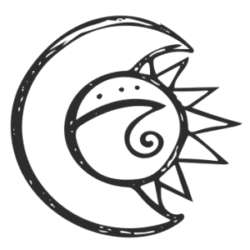Dec 22, 2014 There was a fullness to our love like that mango just within your reach unblemished and warm falling straight into your palm eaten under the shade of the tree juice dripping down your elbow temporary in its bliss, but perfect in that moment.
Showing|Learning
For one of my classes in my first semester of college, my final project was to create an installation demonstrating how I learned in the class. Throughout the semester I was perpetually frustrated with the course. It was based in art history, but the art we looked at and the conversations we had remained centred around whiteness. That is a story for another post though. The installation had to include an image of ourselves as learners, objects, and a quote. I have compiled some photographs of this final project, my statement, and audio from my final presentation. Presentation Audio “The…
always in the quiet hours (22 sept 2014)
at night i ask when will i relearn to love myself in the quiet hours
lessons i have yet to learn
(22 July 2014) Things that start with “maybe if I” and end with “then I will feel better’ rarely ever work. Happiness will not come from someone else’s touch there is nothing and noone you can put in your mouth or on your body that can bring you joy.
27 april 2014
self-loathing: i find myself relieved when vile men can still find this expanse of flesh appetizing
24 april 2014
you are not a graceful sleeper but i have learned to love your sprawled sighs when i can’t sleep.
primary caregiver
(july 2013) Step one of growing older in the presence of the elderly: observe how the giants of your childhood wither into frailtyStep two: begin to second guess every eccentricity Is this what they meant by signs to look for?When did she get so small?How could she have ever forgotten my birthday?Step three: dance around her with the nervousness reserved for the ill.She will look at you with the resentment that can only come from those whom illness has only left shame and regret. Step four: begin to hold her hand again. It is one to thing to care for…
bankrupt
(oct. 2013) Part of me longs for richness With wealth comes the freedom To make your home in whatever place you like. Tell me that true wealth comes from loving And I will tell you that love goes far But cannot feed empty bellies You cannot pay bills on love alone And too much of this life comes with a price. Tell me I cannot eat money But tell me what I can eat without it. Tell me that true wealth comes from the people you hold in you heart And I will tell you that there are people Who…
re: self care
I am learning mantras And rubbing them Like oils into my skin Mine is a good body And the world, Wondrous as it is, Is made more so When I am in it These are my balms. Let them be salves For the cracks in my soul.
on blooming:
lessons i learned from the pavement: life continues to bloom; even through cracks in the concrete.
